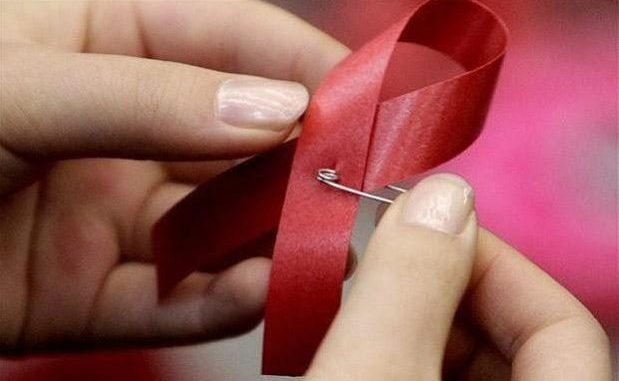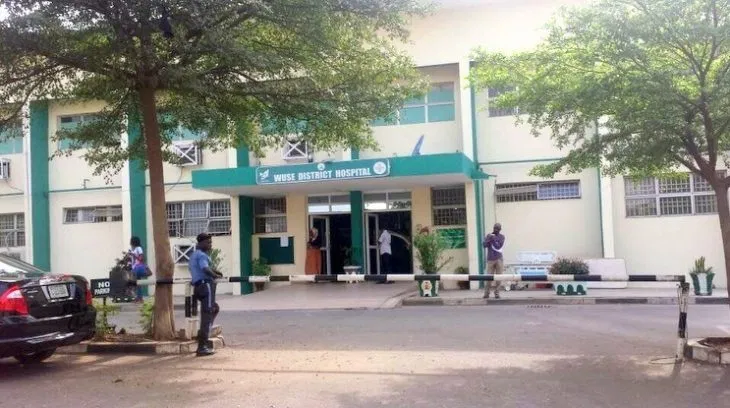

Today, Nigeria joins the rest of the world to celebrate the World AIDS Day amidst a significant improvement in the country’s response to HIV in recent years.
The impact of the response is evident in the preliminary results of the Nigeria HIV/AIDS Indicator and Impact Survey (NAIS) released in March.
The survey — which cost about $100 million, involved 185 survey teams, and covered more than 200,000 people — indicates that there are 1.9 million people under the age of 64 living with HIV in Nigeria — a 40 per cent reduction from the country’s official national HIV prevalence estimates for 2017.
But huge gaps in testing and prevention of mother-to-child transmission of HIV still make the goal of ending the epidemic by 2030 in Nigeria out of reach, according to findings from UNAIDS .
Nigeria accounted for 37,000 of the world’s 160,000 new cases of babies born with HIV in 2016.
Vice President Yemi Osinbajo during last year’s World AIDS Day celebration had announced the federal government’s commitment to ending the epidemic by 2030.
This the government intends to demonstrate by “increasing 2019 budget on HIV treatment to accommodate additional 50,000 people on treatment.”
The number of sites providing services to prevent mother-to-child transmission has increased with billions of naira spent in providing test kits for pregnant women through initiatives such as the Save One Million Lives (SOML) programme.
Why then are babies born to HIV-infected mothers still at the risk of starting their lives with the deadly virus?
‘Coverage still low’
Steve Aborisade, a public health advocate, believes the issue has to do, first, with coverage.
“Coverage is yet to be universal, i.e everyone needing treatment being able to access it,” he said.
Mr Aborisade, who is the advocacy and marketing manager, AIDs Healthcare Foundation (AHF), however, laid more emphasis on the non-functionality of “our Primary Healthcare Centres”.
“Most (PHCs) lack adequate personnel, while support to that tier of healthcare is absent. Most women needing to be reached are in rural areas where the primary healthcare centres are the only option for the majority.
“But with the state of PHCs, costs, and logistics associated with seeking care at secondary facilities, many pregnant women are left at the mercy of traditional birth attendants.
“Training on HIV prevention has mostly not covered many of the traditional birth attendants so this leaves room for transmission. Same for some faith centres. We must also acknowledge the attitude of many. Even for those who can afford to deliver at health facilities, some would attend antenatal sessions but still end up in churches and with traditional birth attendants. A lot is being done by the government to streamline the traditional birth attendants into the scope of primary healthcare settings but coverage is low.”
Preventing mother-to-child HIV transmission
Prevention of mother-to-child transmission (PMTCT) programmes have focused primarily on preventing transmission from an HIV-infected woman to her infant. But not much attention has been given to improving the knowledge and awareness of HIV transmission and prevention among pregnant women especially in rural communities.
According to Nigeria’s latest National Demographic Health Survey (NDHS), only about half of the population of women know that HIV can be transmitted during pregnancy, labour/delivery or breastfeeding.
Mother-to-child transmission (MTCT) is preventable through monitoring and tracking the delivery of a proven set of health interventions but only a little more than half of women know that the risk can be averted by the mother taking special drugs, the NDHS 2018 indicated
Way forward
“The only way we can eliminate MTCT of HIV is to make sure we take these services to the community level and that is what we are doing at the moment”, said Gambo Aliyu, the Director-General of the National Agency for the Control of AIDS (NACA).
“We are looking at non-health sector part of the community where we take the services via traditional birth attendants and other service providers that attend to pregnant women at home. We empower them to offer HIV testing and when they find anyone that is positive they refer them to the health facility and encourage them to bring the children after delivery for testing.
“If this is practised in the community, what it will give us is that individual that doesn’t usually come to the hospital can now be reached.”
‘Poor Awareness’
The World AIDS Day is celebrated December 1 every year to honour the people who have fallen to the disease as well as people living with HIV. It is also celebrated to raise awareness on the disease and the need for people to know their status.
MTCT is one of the many challenges to ending Nigeria’s HIV epidemic by 2030. Many Nigerians still do not take their quarterly screening for HIV serious.
Importantly, most Nigerians have never heard of Post Exposure Prophylaxis (PEP) for HIV, a PREMIUM TIMES investigation found earlier this year.
PEP for HIV is a short-term treatment with antiretroviral medicine to reduce one’s chance of becoming infected with HIV after a potentially high-risk situation.
The 30-day medication helps prevent HIV from replicating and spreading in the body as long as it is first taken within 72 hours after exposure.
Former health minister, Isaac Adewole, had advised Nigerians to know their status as the only way to achieving the first 90 target of the Joint United Nations Programme on HIV and AIDS (UNAIDS) by 2020.
The 90–90–90 goals set by UNAIDS and its partners include: to diagnose 90 per cent of all HIV-positive people; to provide antiretroviral therapy for 90 per cent of those diagnosed; and to achieve viral suppression for 90 per cent of those treated by 2020.
THE ROTTEN FISH: CAN OF WORMS OPENED OF APC & TINUBU'S GOVERNMENT OVER NIGERIA'S ECONOMIC DOWNTURN
WATCH THE CRITICAL ANALYSIS AND KNOW THE RESPONSIBLE PARTIES TO BLAME FOR NIGERIA'S ECONOMIC CHALLENGES, WHILE CITIZENS ENDURE SEVERE HARDSHIPS.Watch this episode of ISSUES IN THE NEWS on 9News Nigeria featuring Peter Obi's Special Adviser, Dr Katch Ononuju, 9News Nigeria Publisher, Obinna Ejianya and Tinubu Support Group Leader, McHezekiah Eherechi
The economic crisis and hardship in Nigeria are parts of the discussion.
Watch, leave your comments, and share to create more awareness on this issue.
#9NewsNigeria #Nigeria #issuesInTheNews #politics #tinubu THE ROTTEN FISH: CAN OF WORMS OPENED ...
DON'T FORGET TO SUBSCRIBE AND LEAVE YOUR COMMENTS FOR SUBSEQUENT UPDATES
#9newsnigeria #economia #economy #nigeria #government @9newsng
www.9newsng.com
